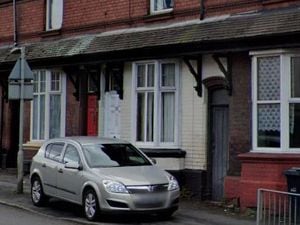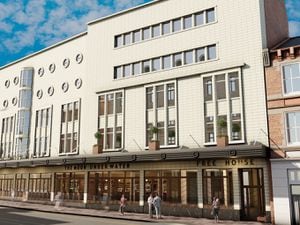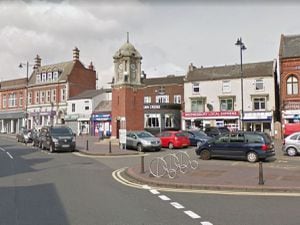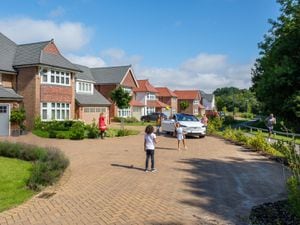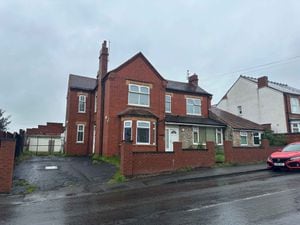Rates have an impact but housing demand remains
House prices have risen by almost 12 per cent in the last year in the West Midlands – the highest increase in the country.
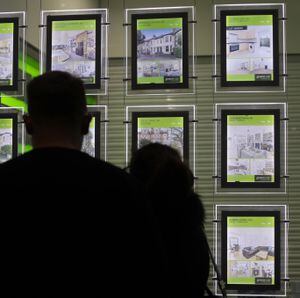
The average house price in our region last month was £254,962, an increase of 11.7 per cent on last October.
But there are signs that the rise in house prices is beginning to stall in the light of rising interest rates and the cost of living crisis.
While figures are up year-on-year, they have started to dip in recent months.
Figures from Halifax reveal October recorded the biggest monthly fall in prices across the UK since early 2021
The average property value fell by 0.4 per cent between September and October, marking the third month-on-month drop seen in the past four months, Halifax said.
The latest month-on-month decrease follows monthly falls of 0.1 per cent in both July and September and a 0.3 per cent increase in August. Annual house price nationally growth slowed to 8.3 per cent in October, from 9.8 per cent growth recorded in September.
Wales joined the West Midlands at the top of the annual growth figure, with an 11.7 per cent rise year-on-year to £222,852. The slowest growth was in London, up 6.8 per cent to £551,320.
Across the UK, the average house price in October was £292,598, which was the lowest figure since May this year, although typical prices remained near record highs, Halifax said.
Average house prices in October, followed by the annual price increase:
West Midlands, £254,962, 11.7%
Wales, £222,852, 11.7%
North West, £229,762, 11.4%
Yorkshire and the Humber, £208,717, 11.0%
South West, £310,737, 10.8%
East Midlands, £244,842, 10.5%
North East, £172,337, 10.3%
Northern Ireland, £184,440, 9.5%
South East, £399,080, 9.1%
Eastern England, £340,607, 8.4%
Scotland, £203,820, 7.5%
London, £551,320, 6.8%
Annual price growth among homemovers fell to 8.9 per cent in October, from 10.3 per cent in September. The price growth slowdown for first-time buyers was more notable, Halifax said, slowing from 10.1 per cent in September to 7.5 per cent in October.
Given the greater challenges for first-time buyers in deposit-raising, plus tighter requirements for higher loan-to-value mortgages, the faster slowdown in prices is not surprising, Halifax said.
But estate agents in our region remain bullish, saying there is plenty of demand out there from buyers for housing across the West Midlands, Shropshire and Staffordshire.
Lee Cooke, a senior local director for Connells, who is based in Wolverhampton, said sales were still very good across the region, although the rise in interest rates had seen bidding wars slow down.
He said: “Since rates went up that has disabled a large amount of buyers who want to buy but can’t afford to now because mortgage payments are higher.” He added that the volume of potential buyers had dried up, but sales were still “fantastic”.
Popular locations were still getting ‘best offer” prices but in medium areas the multiple offers were no longer there, he said.
“We introduced 64 houses last month and sold 92 per cent,” said Mr Cooke. “In the last three weeks sales have been better than the same period last year. Instructions had increased last month with some people needing to sell in order to downsize because of the rising rates.”
Natalie Hines, founder at West Midlands-based Premier One Mortgages: “A fall in house prices was inevitable after the tumultuous past six weeks or so. Since the mini-Budget, there has been a definitive slowdown in purchase activity so I’m fully expecting a drop in prices during the year ahead.
“Sentiment has been hit hard by rising interest rates and people’s buying power is no longer what it used to be.
“I certainly don’t think we’ll see the 20 per cent plus drop in house prices some are predicting, as that would put the entire economy on the brink, but prices are without doubt coming down. “
“A correction in house prices is what’s needed to help get first-time buyers on the property ladder.
“For many first-time buyers, prices have been out of reach for so long. A house price correction could give them the leg-up onto the ladder that they need. How the jobs market holds up in the next year or so, as the Halifax points out, will be key.”
Kim Kinnaird, director of Halifax Mortgages, said: “It’s important to keep this in context, with average property prices rising more than £22,000 in the past 12 months, and by almost £60,000 – or 25.7 per cent – over the last three years, which is significant.”
“While a post-pandemic slowdown was expected, there’s no doubt the housing market received a significant shock as a result of the mini budget, which saw a sudden acceleration in mortgage rate increases.
“While it is likely that those rates have peaked for now, following the reversal of previously announced fiscal measures, it appears that recent events have encouraged those with existing mortgages to look at their options, and some would-be homebuyers to take a pause.
“Understandably we have also seen consumer caution grow as industry data shows mortgage approvals and demand for borrowing declining.
“The rising cost of living coupled with already stretched mortgage affordability is expected to continue to weigh on activity levels.
“With tax rises and spending cuts expected in the autumn statement, economic headwinds point to a much slower period for house prices.
“While certain longer-term, structural market factors which support higher house prices - like the shortage of available properties for sale – are likely to remain, how significantly prices might ultimately adjust will also be determined by the performance of the labour market.
“Currently, joblessness remains historically low, but with growing expectations of the UK entering a recession, unemployment is expected to rise.
“Whilst it may not spike to the same extent as seen in previous downturns, history tells us that how this picture develops in the coming months will be a key determinant of house price performance into next year and beyond.”
Last week, the Bank of England increased the base rate to three per cent, from 2.25 per cent previously.
This was the latest in a string of base rate increases, meaning that since December last year the average monthly tracker mortgage payment will have increased by £284.17 in total, according to figures from trade association UK Finance.
Andrew Simmonds, director at Parker’s Estate Agents, said: “Since the summer, I’ve been telling vendors that their house is worth what it was worth 12 months ago. I’ve lost instructions because they’ve said ‘nah’.”
He added: “Plenty have since come back to me saying: ‘You were right’.”
Nathan Emerson, chief executive of estate agent body Propertymark, said more homes for sale are coming to the market “which is providing buyers with a greater choice”.
He added: “This will therefore mean they can be more level-headed with the offers they’re putting forward which will naturally see a softening in prices being achieved over the next few months.”
Jason Tebb, chief executive officer of property search website OnTheMarket.com, said: “Sellers are likely to find that if they don’t price realistically, they may struggle to generate interest.”
Alice Haine, a personal finance analyst at Bestinvest, added: “With inflation at a 40-year high of 10.1 per cent, interest rates at three per cent, the economy slowing and the mortgage market still reeling from the effects of Liz Truss’s short tenure as prime minister, affordability is very much in the spotlight, with buyers forced to confront whether now really is the right time to buy.”

